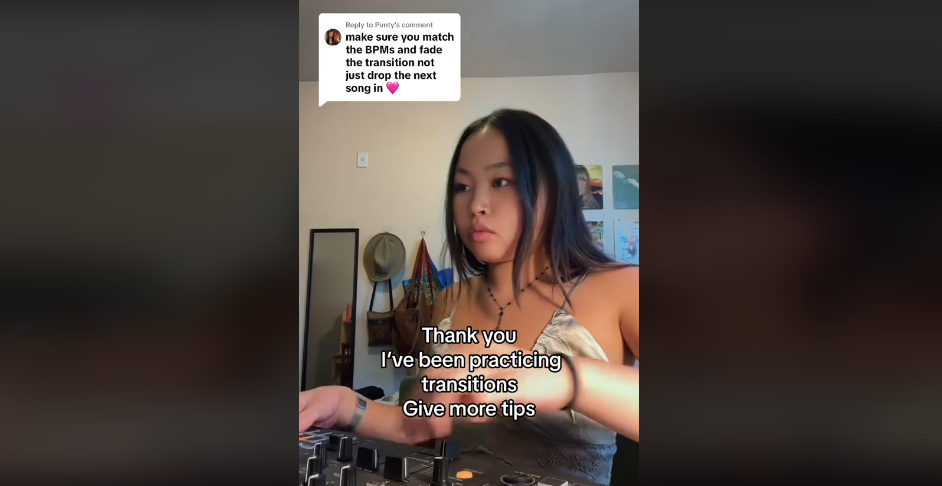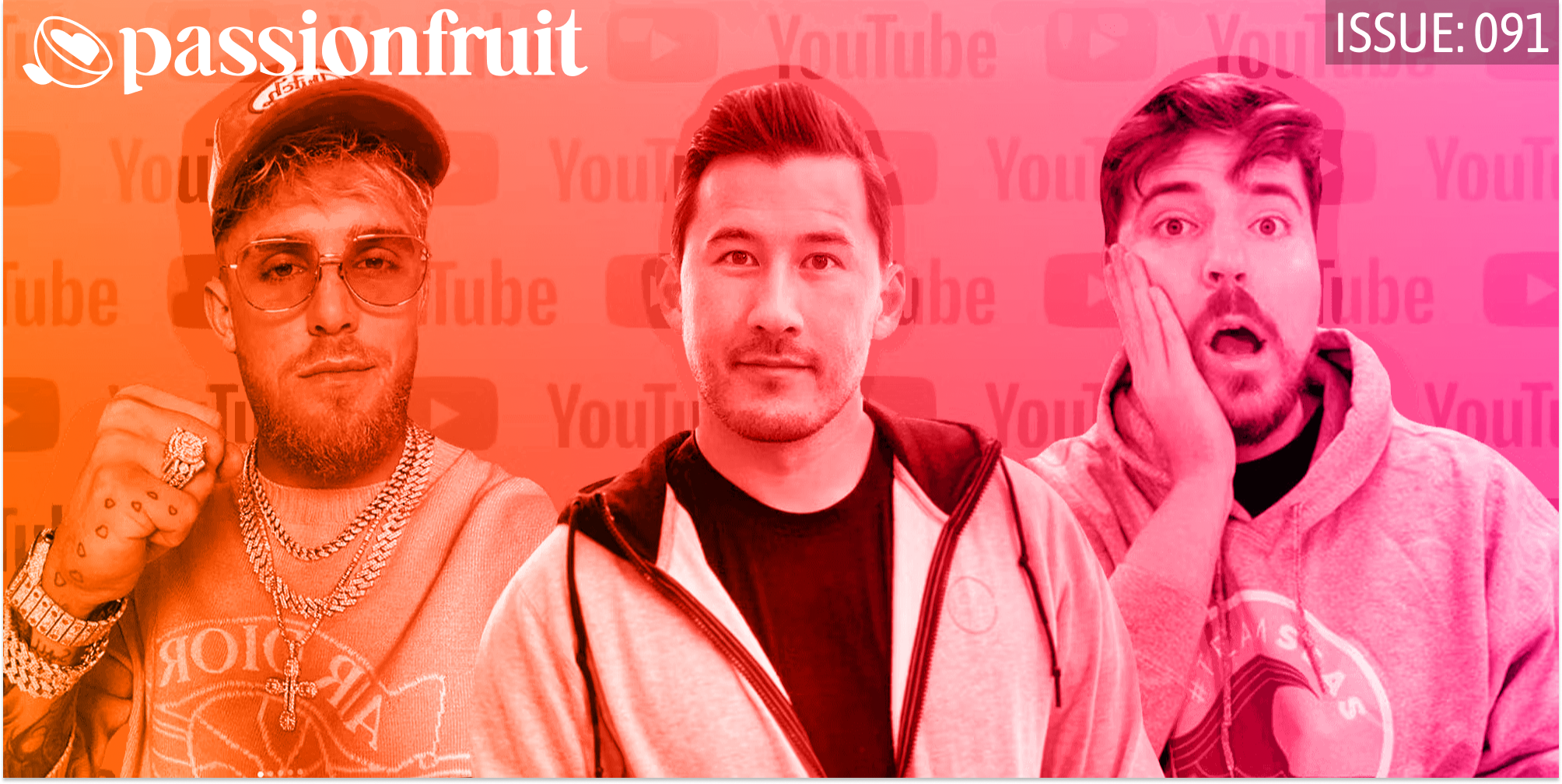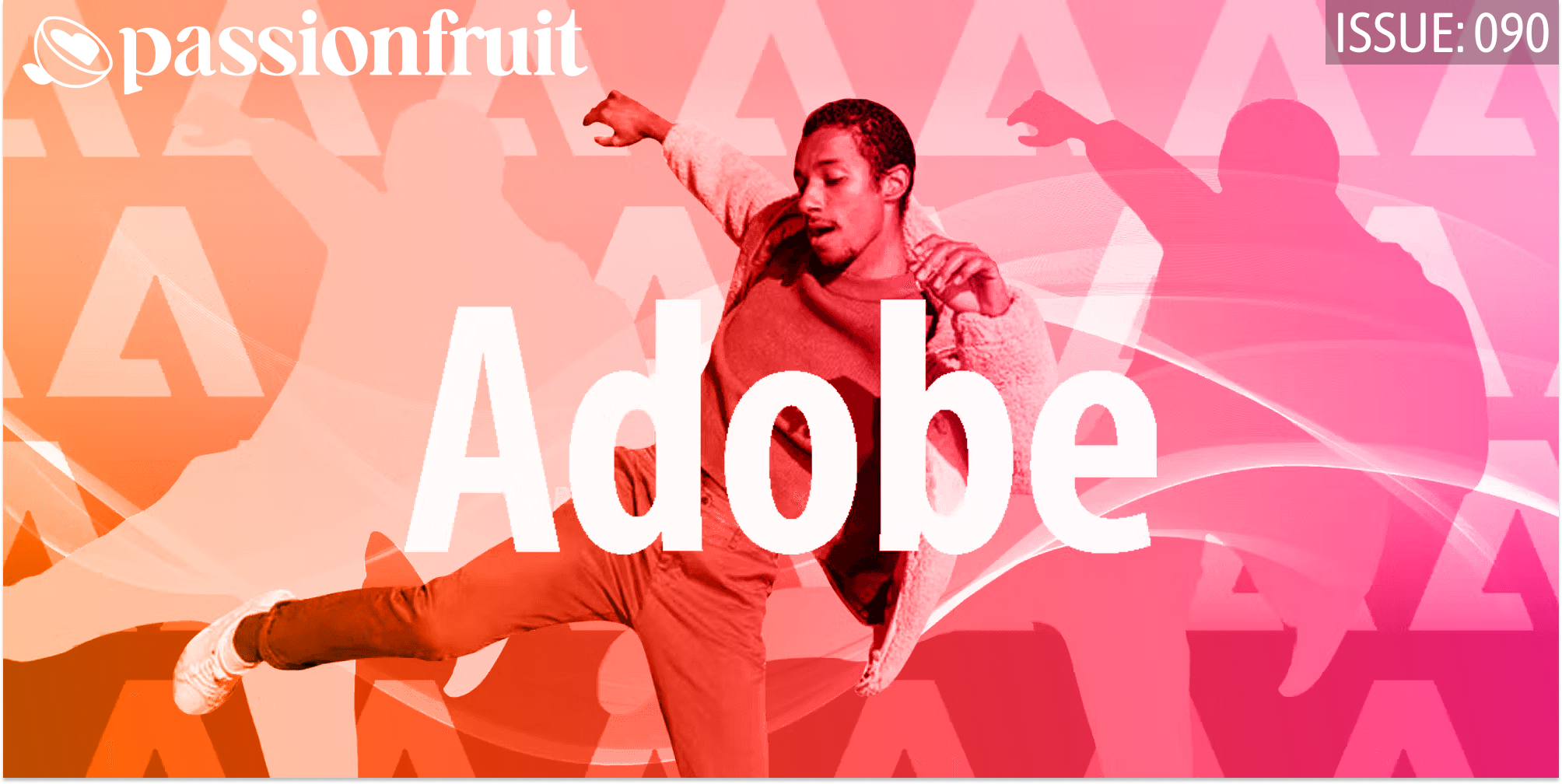CREATOR NEWSLETTER
Issue #175 | Oct. 10, 2023
Last Wednesday, Jack Conte, the founder and CEO of Patreon (and former co-creator of 2010s YouTube-viral band Pomplamoose), dropped a flashy, musical, vloggy video explaining his company’s new vision and platform updates. The 39-year-old-creator-turned-entreprenuer shows himself mixing beats on keyboards and drum machines, passionately explaining that the company was no longer going to be just for the monthly subscription services it’s known for. It’s changing, and in “big” ways.
Why? Conte claims the company is shifting gears to become a more all-encompassing social platform, as opposed to just being a monetization tool. He says the company is pivoting because creator communities are “under threat” — by the big, bad boogeyman known as the algorithm.
From now on, Patreon will grow its tool to be a total social experience for the New Age, harkening back to the early days of MySpace. As always, Patreon content feeds will continue to be completely curated by who we follow, not by an algorithm. But now, rather than only offering paid membership tiers, users will be able to browse creators’ feeds on free tiers, which will be curated by creators. Creators can then customize their followers’ feeds with unique colors, fonts, and logotypes.
The platform, of course, will go beyond the simplicity of a platform like MySpace and will feature the functionalities we’ve come to expect from major social platforms and that Patreon already offers — paid subscription services, e-commerce tools, chats, comments sections, and video uploads (no in-app video editor though sadly like TikTok and YouTube offer). Plus, Patreon offers the added bonus for creators to be able to see their subscribers’ email addresses, allowing them to more directly “control” their audience.
What once could have appeared to be a default — that Patreon lacks the discoverability features and ease of audience growth provided by other platforms — now is being presented as a new “vision” backed by an anti-algorithm manifesto.
Conte specifically throws TikTok under the bus for introducing the AI-driven “For You” feed format, which really changed everything about how we engage on the internet. YouTube, Twitter, Instagram, Facebook, and even Snapchat have all copied the algo feed. Now, what most social media users consume is carefully crafted by our personal data. Platforms prey on what we’re most likely to click, share, spend time watching, and swipe quickly past.
This new feed revolutionized the internet, for better or worse. For creators, there’s certainly an upside: Even if you have zero followers, if your video is clicky enough, the algorithm could make you a viral sensation overnight. Yet there’s an obvious downside for creators too: By shifting users’ attention away from their following feeds, fans are driven away from content by creators they respect and trust the most.
Deep fandom, originality, and artistry are not necessarily rewarded by the algorithm. Many creators who make the best content see no long-term success from their creativity. As Taylor Lorenz noted in her new book, “Extremely Online,” when 2020’s viral “Renegade” dance picked up steam on TikTok — with hundreds of teen dancers and celebrities copying it — its original creator (14-year-old Jalaiah Harmon) did not receive any credit or financial reward for the dance’s explosion. It wasn’t until after Taylor Lorenz reported on her story that Harmon was able to get the credit, brand deals, and business opportunities she deserved.
As Lorenz also notes in her book, platforms have done a lot since 2020 to try to be seen as more creator-friendly. On the heels of a pandemic-related boom in venture capitalist interest in the creator economy, more and more social platforms are throwing money at creators to incentivize them to use their platforms. We’ve seen the creation of TikTok’s creator fund, Twitter’s ad-share and subscription monetization services, Instagram Reels incentives, etc, etc.
Yet, as people try to make a living off their content, the priorities of each platform’s algorithm, as well as each platform’s rate of payment, often change mercurially on a whim. This makes building a career as a creator unpredictable and stressful.
Patreon knows how public sentiment has turned against algorithms, and is now looking to position themselves as an alternative. There’s an understanding that fans and creators alike want a break from their tailor-made algorithms, which prey on their data and deepest insecurities. People will perhaps seek respite in a platform that reminds them of the humble roots of the internet, where creators eschewed viral traction in favor of deep audience bonds and meaningful connections.
But, Patreon has certainly had its historical missteps that alienated creators — including outraging creators by increasing fees from 5% to 8-12%, and most importantly failing to properly deliver upon its primary function by having serious payment distribution and technical errors. With this latest change in Patreon’s vision, people who make a living off Patreon income could be threatened by an overall distraction from the core functionality the site is known for: subscriptions.
THE COMMENTS SECTION
“All the time and effort Patreon has been spending developing questionable new features to increase their revenue has caused them to neglect the key service which made the site popular in the first place.”
—YouTuber Tom Nicholas on Patreon’s latest changes.
On the Silicon Valley side of things, Patreon has seen a huge increase in VC funding and therefore growing pressure to make money. It’s faced a slowing rate of growth, a drop in valuation, questionable layoffs, and even settlements over allegations of gender discrimination by former staffers. Conte himself has been accused by former employees of being a poorly organized and difficult boss to please.
Really, this new PR video from Conte is just the latest shiny rebrand of a product in an effort to boost interest and engagement. Still, Patreon has one of the most generous revenue-sharing options on the market. And Conte’s humble creator-driven roots have garnered it a much better reputation than companies like TikTok, Twitter, Google, or Meta.
Patreon is a platform that it claims has over 250K creators and 8 million users who depend upon it. There is a dedicated user base that will no doubt buy into this spun-up message. Many Patreon creators will put in some elbow grease and see if they can pry their fans’ eyeballs off the addicting algorithm and toward their siloed, custom-designed communities. Others will continue with business as usual.
Only time will tell if Patreon’s great anti-algorithm experiment will stand the test of time.
– Grace Stanley, Newsletter and Features Editor
THE DARK SIDE
Musk’s Monetization Has Made Finding the Real News Impossible
Over the weekend, one of the most important geopolitical assaults between Israel and Hamas took place, and X users monetizing misinformation raked in the dough.
By Steven Asarch, Passionfruit Contributor

IN THE BIZ
- TikTok introduced a feature that will let users post video directly from other popular video services and editing apps, including Adobe’s Premiere Pro and Adobe Express, Bytedance’s CapCut, and Twitch.
- Meanwhile, the rise of TikTok shop has also come with a host of new problems — including the promotion of dangerous health trends and phony products.
- Media company Rooster Teeth pulled many of its shows from YouTube, saying it can make more money from its own website than from YouTube.
- Creators on TikTok are saying that the beauty industry has an inclusivity issue, sparked by popular beauty brand Youthforia releasing a particularly awful shade range on its new foundation.
- Twitch’s CEO says the streaming platform is going to crack down on streamers who generate “fake” views by embedding autoplays of streams on other websites, like wiki pages for video games.
- Non-profit Earth Alliance announced a Creator Fund which will give out $2,000 grants to creators who make climate-related content.
TIPS AND TRICKS
Music Licensing for Content Creators: Navigating Copyrights and Royalties
A crash course through music licensing from a content lawyer.
By Veronica Ramirez, Passionfruit Contributor
INFLUENCING 101
Is a College Degree in Influencing a Good Thing?
South East Technological University in Carlow, Ireland became the first university to create a formal program centered around becoming an influencer.
By Andrew Fiouzi, Passionfruit Contributor
JOB BOARD
- Finance creator Lucas Lee-Tyson is looking for a video editor.
- Lifestyle group The Sorry Girls are looking for a creative director.
- Video essayist the Nerd Writer is hiring a video editor.
- Gaming publication Dexerto is looking for a YouTube producer.
- Drama documentarian Internet Anarchist is hiring a video editor.
TIKTOK MADE ME DO IT
Everything is horrifying online right now, but we’re glad to be swept away by our favorite musical prodigy, DJ Mandy.


Copyright © 2022 Passionfruit, All rights reserved.
You are receiving this email because you signed up to get the latest tips, tricks,
and trends in the creator economy from Passionfruit.
Have an idea for our next big story or want to get featured? Email us at tips@passionfru.it
Don’t want to hear from us anymore?
Click here to unsubscribe
To view in your browser click here





